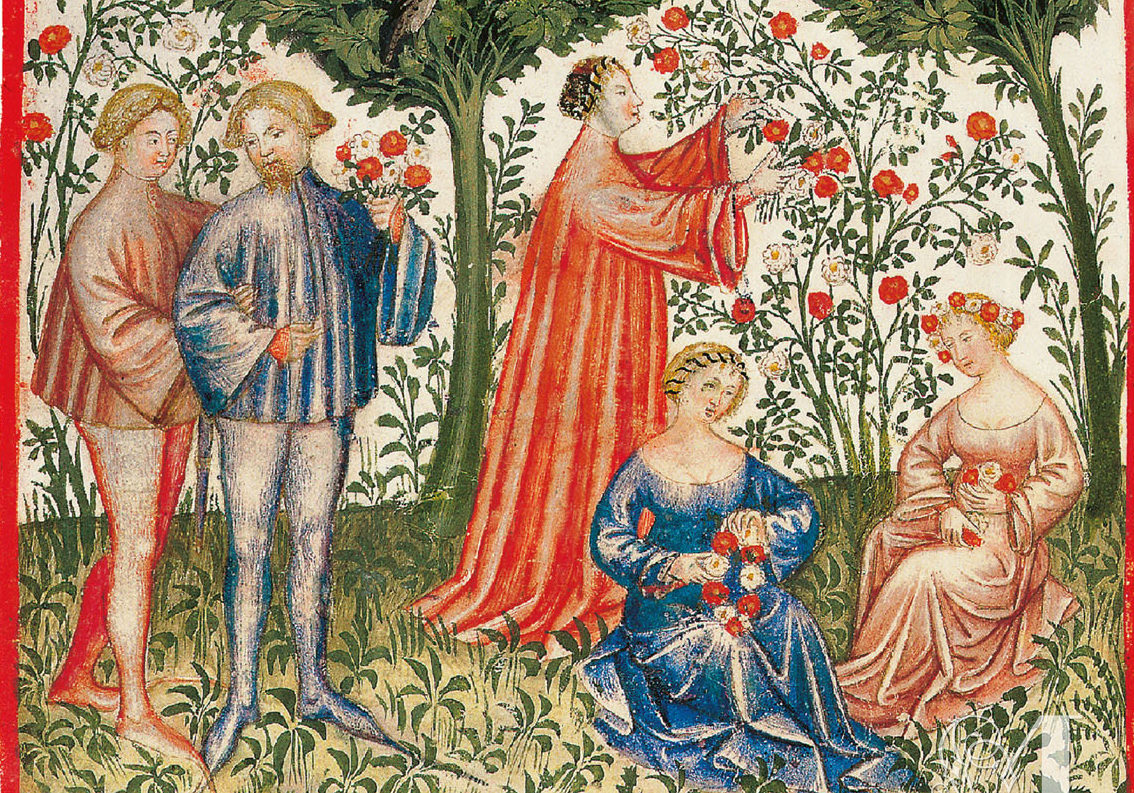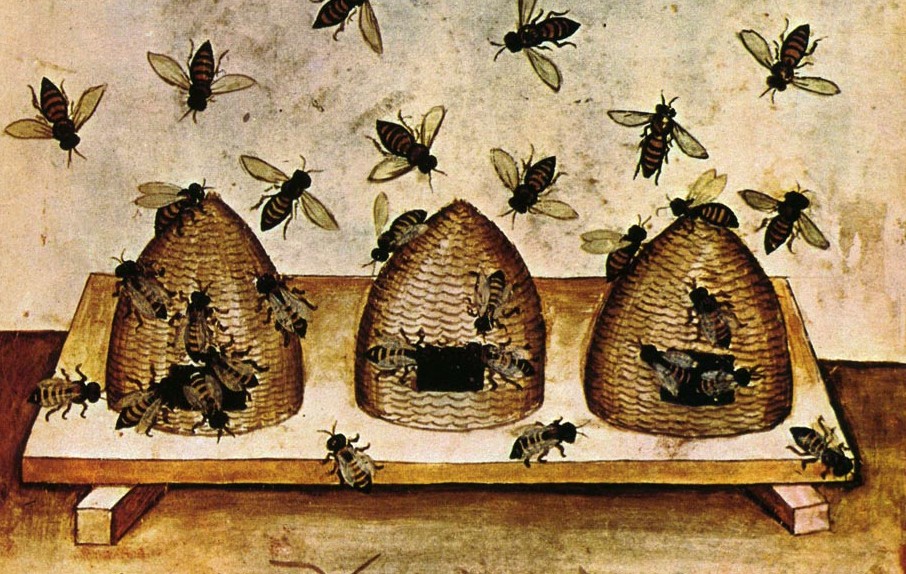Hal-an tow, Jolly Rumbalow – Making Merry in the May !

Hal-an-tow, jolly rumbalow!
We were up long before the day-o
To welcome in the summer
To welcome in the May-o.
The summer is a-coming in
And winter’s gone away-o.
Robin Hood and Little John
Have both gone to the fair-o.
And we will go to the merry greenwood, to see what they do there-o
~
Welcome to the merry and magical month of May! Out comes Jack, Robin Hood, the maypole and all the flowers in the greenwood, some with a ‘hey nonny -no’ and some without, and jolly wonderful it all is too!
In 1883 the Shropshire folklorist, Charlotte Burne, wrote ‘the magical virtue of everything connected with the month of May is well known’ and over one hundred years later May retains its ambience of the uncanny.
It’s a liminal time and the magical properties of herbs and other plants collected in May are still regarded by some as beneficial. It was once a time to make cures and slaves such as this 19th century balm for burns made from ‘goose-dung and the ‘middle bark’ of the elder tree, fried in May butter.‘

To wash one’s face in the early dew of a May morning will enhance beauty and remove blemishes because the dew contains goodness from the spring herbs and grasses. It also has the power to strengthen joints and muscles if rubbed into the skin.
This most enigmatic of months is a time for dalliance and love has been fondly welcomed and celebrated for hundreds of years, . Fetching green boughs and flowers into the home. the ‘bringing-in of May‘, was first recorded in the thirteenth century apparently referring to a variety of foliage but primarily the blossom of the hawthorn (May blossom) or whitethorn. In Shropshire the hawthorn doesn’t blossom until late in the month and so Marsh Marigolds, known as ‘Mayflowers’, were gathered instead. Birch was preferred in the Welsh Marches and Wales.

Special May songs were sung in some places; the ‘Night Song‘ on May eve followed by the ‘Day Song‘ on May morning, most famously sung today at Padstow in Cornwall. Hertfordshire, Leicestershire and Cheshire also sang night and day songs. Many May songs still survive and the local pub still resonates to some riotous singing but ‘Delilah’ just doesn’t cut it in the same way as once did the ‘May’ songs of folk singer Fred Jordan did. Fred was well known in these parts and was apparently happy to sing the evening away in return for a few pints after finishing work in the fields.
This was also a time a time for some opportunist fund raising. In seventeenth London, milkmaids put on their best frocks, dressed up their pails and hair with flowers. They would dance through the streets to the sound of fiddle and drum, collecting money from their admirers as they went. Samuel Pepys recorded encountering one such group in 1667 one May Day on his way to Westminster.
![The Milkmaid's Garland [or] Humours of May Day](https://www.vam.ac.uk/blog/wp-content/uploads/2015/04/milk-maids-crop_ff0b266e0d66920cddb5e73b59cae637-610x356.jpg)
Oil Painting by Francis Hayman RA, 1741-2
Museum no. P.12-1947 © Victoria and Albert Museum, London
When pretty milkmaids went about, 'In London thirty years ago Its was a godly sight to see, Their May day pageant all drawn out. Such scenes and sounds once blest my eyes, And charmed my ears, but all have vanish’d On May Day now no garlands go, For milkmaids and their dance are banish’d' Hone's Everyday Book, 1827
Many customs were banned following dissolution and reformation according to contemporary political and religious views and no doubt many are lost or forgotten. But a few survive, often seen as symbols of rebellion and non-conformity.
Some traditions have been subjected to a nostalgic revival and, in some cases re-invention. Victorian antiquarians and folklorists recorded and ‘rescued’ many traditions for which we must be grateful as many would have been lost and forgotten (although they ‘cleaned’ some to make them more respectable or even to make them sound as better, or so they thought) Their identification by some as representations of a pagan past has, in some cases, ensured their survival and subsequent revival. Maybe they are, maybe not. Certainly these assumptions have been challenged in recent years. But let us gently steer away from such controversies and have fun with some of the sayings and observations that so beautifully illuminate this beautiful and uncanny time of year
- ‘May Goslings dead and gone, you’re the fool for thinking on!‘

This is a tradition from the north of England when like the pranks played on the first of April.
The tricks played on the first of May must finish at 12 midday else the offender will be teased and called a May Gosling!
2. To calm bees or stop them swarming, 16th century style… “A little durt cast up on high, doth end the quarrell presently”.

So recorded Thomas Tusser in 1557 concerning correct husbandry for May, a prime time for honey bees to swarm, a natural way for them to perpetuate their species often dreaded by some bee keepers as it reduces honey yield. Tusser also wrote…
…the old inhabitants being wearie of their dwellinys doe leave their hives, then must you fall to ringing of Pans and Basons, to fear of bring don the runaways.
Ther fights…amongst themselves or one hive with another are easily stickled.
I would have thought the noise would make the bees more cranky. What is especially interesting to me is that Tusser’s observations echo a much older Anglo-Saxon charm to calm a swarm of bees:
Take earth with your right hand and throw it under your right foot, saying:
I’ve got it, I’ve found it:
Lo, earth masters all creatures,
it masters evil, it masters deceit,
it masters humanity’s greedy tongue.
Throw light soil over them [the bees] as they swarm, saying:
Sit, wise women, settle on earth:
never in fear fly to the woods.
Please be mindful of my welfare
as all men are of food and land.
It may be that throwing dust in the air calms the bees in a similar way to the smoker used by modern bee keepers.
3. Don’t cast a clout, till May is out!
There are still frosts and sometimes even snow showers in May so keep your woollies on till the end of May!

4.‘Rough winds do shake the darling buds of May, And summer’s lease hath all too short a date‘
William Shakespeare, Sonnet 18
It is useful to note that prior to 1582 England was using the Julian calendar hence May Day was two weeks later than nowadays (our May 12th). This is reflected in early prose and references as certain flowers are not in bloom on the modern May Day and the difference of two weeks can make all the difference to outdoor celebrations also!

And finally, here is a final verse from the ‘Night Song’. It has many versions and still sung on May Eve.
The moon shines bright, and the stars give a light, A little before it is day, So God bless you all, both great and small, And send you a joyful May.
The Night Song, Hertfordshire 1823